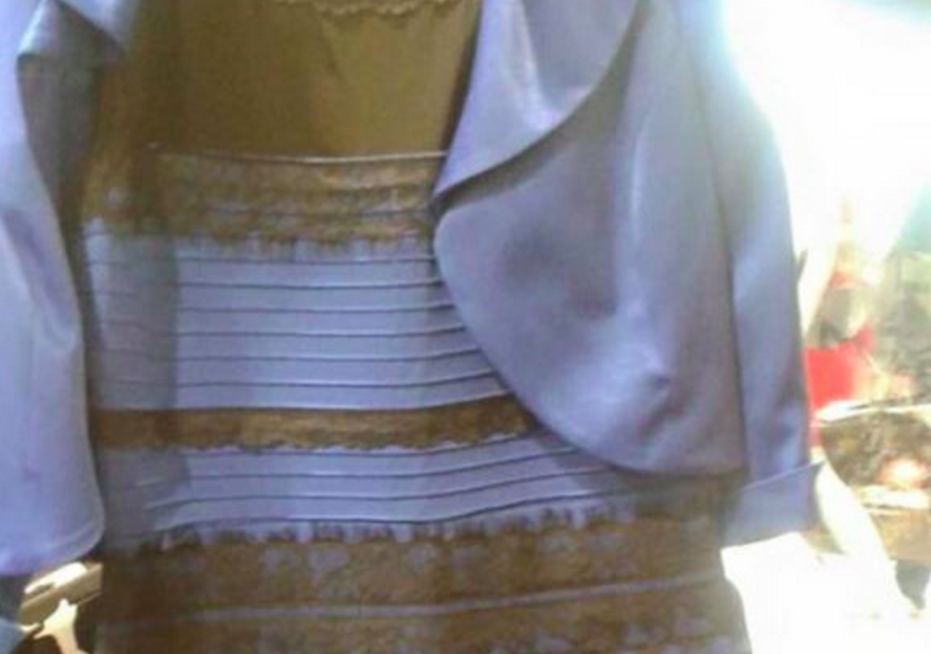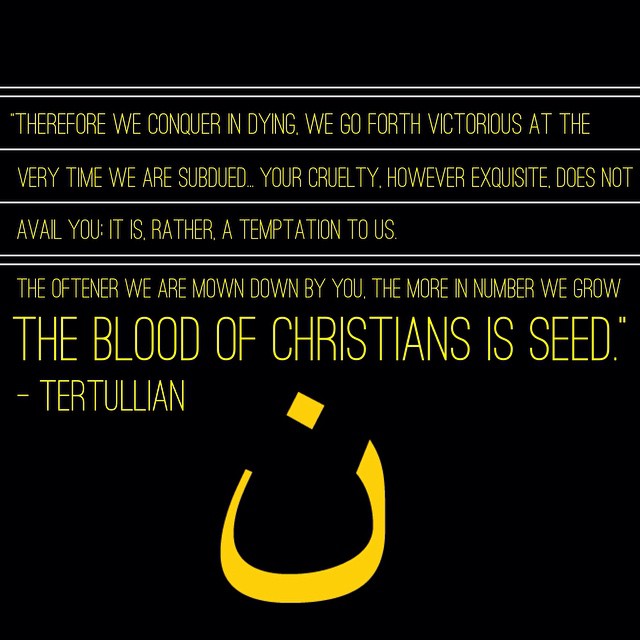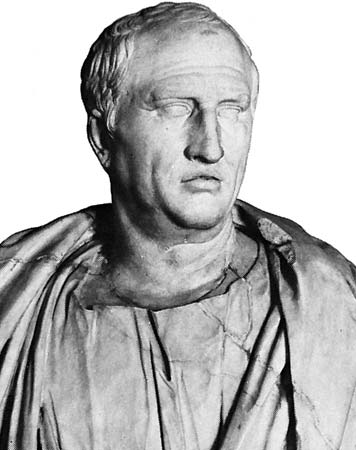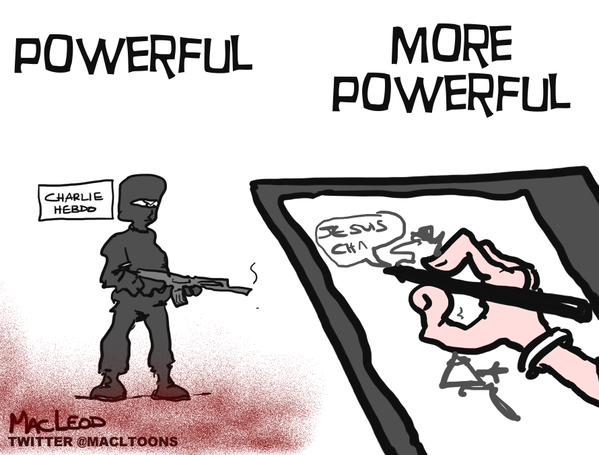My Facebook newsfeed is awash with discussions about Halal food. Today it’s Halal Easter Eggs (from Cadbury). Last week it was people speculating about links between Halal food and funding for people trying to introduce Sharia Law to Australia, or funding for terrorism.
I think all food is certified by the true and living God, provided it is “received with thanksgiving,”
“They forbid people to marry and order them to abstain from certain foods, which God created to be received with thanksgiving by those who believe and who know the truth. For everything God created is good, and nothing is to be rejected if it is received with thanksgiving, because it is consecrated by the word of God and prayer.”— 1 Timothy 4:3-5
And, the ultimate key to “certified,” God-approved, food,” is Jesus, who calls himself the “bread of life.”
“Do not work for food that spoils, but for food that endures to eternal life, which the Son of Man will give you. For on him God the Father has placed his seal of approval… “I am the bread of life. Whoever comes to me will never go hungry, and whoever believes in me will never be thirsty.” — John 6
Halal Easter eggs are a great opportunity to love your Muslim neighbours and share the message of Easter with them. But getting to that conclusion, and dealing with some of the objections Christians have to Halal food, might take some doing…
Halal is an Islamic term that means “permitted” it is the opposite of Haram, which means not permitted. I’m not going to claim to be an expert on Halal, I’m not a Muslim. It would be odd for me to do so. But, from what I gather, for a food to be permissible for a Muslim (Halal) it simply needs to not be haram — there are certain foods, especially meat, where there are guidelines that must be met to ensure certain boxes are ticked. Outside of this, it seems most foods (those not forbidden) are fair game.
Here’s what the Australian Food and Grocery Council says about Halal certification.
Many Australian food manufacturers seek Halal certification of their facilities and processes, in order to label their products as Halal and ensure they are able to be enjoyed by Muslim consumers. In the same way that food labeled as vegan or gluten-free is suitable for consumption by a broad range of consumers, Halal certified foods are commonly enjoyed by non-Muslims.
For a product to be Halal, it must be as a whole, and in part:
- free from any substance taken or extracted from a Haram animal or ingredient (e.g. pigs, dogs, carnivorous animals, animals not slaughtered in compliance with Islamic rites);
- made, processed, manufactured and/or stored by using utensils, equipment and/or machinery that has been cleaned according to Islamic law (e.g. not cleaned with alcohol); and
- free from contact with, or being close to, a Haram substance during preparation, manufacture, processing and storage (e.g. blood, alcohol, poisonous and intoxicating plants and insects such as worms and cockroaches).
Many foods and drinks, particularly those that do not contain meat or alcohol, are inherently compliant with Halal criteria. Official certification, which may be granted by accredited religious authorities in Australia, any claim of certification is however required before products are able to be labelled as such.
Halal certification is a gateway into a massive industry, a Monash University study estimates the Halal industry’s global value at $3 trillion, and growing, with the Halal food market a relatively small $700 billion per year segment of this industry. This primer on Halal certification from The Conversation suggests it’s $1.75 trillion. It makes sense (and cents) for Australian food producers to try to sell their products to a large portion of the international population.
I get the impression that Halal certification is simultaneously a semi-unnecessary marketing tool, and part of an increasingly global marketplace — it seems to me that the Islamic world survived pretty well for a long time without labels on food. But setting up businesses to make it clear that particular food stuffs are free of contaminants is a clever business model for serving the Islamic world.
Business sense aside, there seems to be some “Christian” concern out there about halal food on the shelves of grocery stores in Australia, and in the pantries of non-Muslim households.
These concerns seem to operate on a few levels. At least so far as the social media campaigns and anti-halal campaigners are concerned (I won’t link to these campaigns because I don’t think they need the oxygen).
- The costs imposed to “Aussie” businesses and passed on to non-Islamic consumers.
- The supposed links to terrorism and Sharia Law.
- That Halal food is “food sacrificed to idols” so Christians shouldn’t eat it.
It’s the third point that I think is most interesting, but I’ll deal with the first two first.
It seems to me that Aussie businesses who pursue halal certification are doing so in order to increase their profits, to expand their markets, I’d hope that this means the benefits outweigh the costs and that rather than passing on costs to the non-Halal audience, the costs of Halal certification are covered by being able to sell their goods to people who would not otherwise buy them. I’m yet to see anyone offering anything like proof, and a few spurious economic arguments that seem to ignore the massive commercial benefits for entering this industry, for the idea that these increased costs will impact consumers.
Halal certification is carried out by a range of organisations, some, it seems, are businesses that have set themselves up to supply services according to this new market, presumably, these businesses are operated by Muslims, who, as a result of their faith, give a portion of their income as zakat (much like a Christian might give to their church), others, like Muslims Australia are a specifically religious institution that invest income generated through their certification into Muslim institutions (mosques, schools, etc).
Consumers in Australia (and everywhere, really) are free to make decisions about what they consume, just as businesses are free to make decisions about how best to open up their products to new markets, deciding who to sell, or not sell, to.
Should Christians oppose Halal?
If Halal products are, directly or indirectly, supporting Muslim institutions, and the expansion of Islam, should we, as Christians, not buy Halal? How should we decide what products to buy, beyond this debate? How do we shop in a way that is consistent with our faith?
Part of making this decision will include being educated about what cause the money that goes to a certain company might support, but where do we draw the line? Why are Christians not campaigning about companies giving money to workers who use it to buy cigarettes, or pornography, or who choose to gamble it? Or companies that profit from these industries? Are they not equally harmful to the end user in terms of the soul? And, more harmful, in terms of the body?
Consumer ethics are a pretty massive minefield, and it’s hard to know where to start drawing a line, saying “boycott X, because X is bad,” it’s hard to know whether or not metaphorical fruit that comes from a metaphorical tree we buy from is poisonous because of its roots. It’s harder still to find fruit that isn’t tainted in some way in a poisonous world full of people who do things that are opposed to God, and for their own benefit (not the benefit of others), by nature (though when it comes to frozen berries that carry hepatitis these concerns about poisonous fruit might be justified and non-metaphorical).
It’s good to shop ethically. It’s good to be informed. It’s good to support people who are doing good. It’s also good, I suspect, to support people because you want to love them well and see them be able to put food on the table for their families. But where is the line when it comes to companies supporting religious ideologies? Do we eat Certified Kosher meat? It hasn’t been prayed over during the sacrifice, but presumably the Kosher certification bodies are funding Judaism? What about businesses run by Christians whose teaching you disagree with? I don’t particularly like some stuff Hillsong says, but that’s not what stops me buying Gloria Jeans coffee (the lack of quality does). I think the Seventh Day Adventists teach a pretty messed up version of Christianity, with a harmful approach to the Old Testament, but this doesn’t stop me buying Sanitarium products. I don’t ask every owner of every business how they’re going to spend their profits. If an Islamic business wants to fund their version of Islam, by allowing a non-Islamic business to sell food to people who trust their certification process, then this seems to be the product of a free market. The non-Islamic business is free to make educated decisions about who certifies their food, for whom, and there are plenty of options out there.
We have great freedom, as consumers, to choose what to buy, and what to eat. More freedom than, historically, anybody has ever enjoyed.
I’m not really interested, in this post, in convincing you not to exercise this freedom. Quite the contrary. But I do think it’s important that we’re consistent in how we exercise this freedom, and that we’re not doing it out of fear, or worse, hatred. It’s downright bad for the Gospel when Christians take part in campaigns against companies and people who exercise this freedom when we are operating out of fear or hatred of the other – rather than love.
I think it’s great when Christians campaign against certain sorts of consumption out of love for people (eg when we stand up against gambling, or pay day loans, or pornography, or prostitution, in a way that loves those whose lives these insidious industries destroy). I think false religions — as a form of idolatry — are destructive, but I don’t think the right response to destructive false religions is hate, or fear, but love.
The loving answer to false religions, is Jesus, not wiping out the food supplies as though these religions are a city under siege.
It seems to me that one way to love our Muslim neighbours is to allow them to eat food in good conscience, just as we might feel loved if we are allowed to eat food in good conscience. If halal certification allows that, then I can’t see how, generally, this is a problem.
As Christians we shouldn’t be on about poisoning the proverbial waterhole — limiting a Muslim’s access to food they can eat— but we should be on about holding out the bread and water of life. Jesus.
There is no way that we can equate campaigning against halal food with God’s work. It is not what we’re called to do… God has his own seal of approval, his own certification method, his own version of certified food — it’s from Jesus, and it is Jesus. Here’s a thing Jesus says, just after he’s fed the 5,000 in John’s Gospel.
“Jesus answered, “Very truly I tell you, you are looking for me, not because you saw the signs I performed but because you ate the loaves and had your fill. Do not work for food that spoils, but for food that endures to eternal life, which the Son of Man will give you. For on him God the Father has placed his seal of approval.”
Then they asked him, “What must we do to do the works God requires?”
Jesus answered, “The work of God is this: to believe in the one he has sent.”
So they asked him, “What sign then will you give that we may see it and believe you? What will you do? Our ancestors ate the manna in the wilderness; as it is written: ‘He gave them bread from heaven to eat.’”
Jesus said to them, “Very truly I tell you, it is not Moses who has given you the bread from heaven, but it is my Father who gives you the true bread from heaven. For the bread of God is the bread that comes down from heaven and gives life to the world.”
“Sir,” they said, “always give us this bread.”
Then Jesus declared, “I am the bread of life. Whoever comes to me will never go hungry, and whoever believes in me will never be thirsty.” — John 6
Bacon is part of the good news of the Gospel (Why Christians don’t follow the Old Testament food laws)
As Christians, our great desire for people is that they enjoy their freedom, we should, I believe, be promoters of freedom. Promoting the freedom to enjoy the goodness of God, that comes through the good news of the Gospel, news where your standing before God doesn’t depend on keeping a bunch of rules and regulations about what you eat, but on God’s good gift to people in Jesus.
The Old Testament contains a bunch of regulations, like the Halal/Haram food laws in Islam, that guided God’s people before Jesus.
Christians don’t have to worry about food laws. And that’s good news. Christians can speak about finding freedom in following God and truly mean it. Hopefully in a way that shows that certification plans for perfectly tasty food are a bit of a rort.
Ultimately, Jesus being the bread of life, the one who gives life, the one who defines “clean” and “unclean” is going to transform the way the people of God approach earthly food. The Old Testament was full of food laws that marked Israel as different from the nations around them, like this, from Leviticus 11:
And the pig, though it has a divided hoof, does not chew the cud; it is unclean for you. You must not eat their meat or touch their carcasses; they are unclean for you.
“‘Of all the creatures living in the water of the seas and the streams you may eat any that have fins and scales. But all creatures in the seas or streams that do not have fins and scales—whether among all the swarming things or among all the other living creatures in the water—you are to regard as unclean. And since you are to regard them as unclean, you must not eat their meat; you must regard their carcasses as unclean. Anything living in the water that does not have fins and scales is to be regarded as unclean by you. —Leviticus 11
No bacon. No lobster. No prawns. No prawns wrapped in bacon.
But Jesus is a game changer. Here’s a few important bits of Bible.
Jesus says it’s not what you eat that defines you as a person in God’s eyes. You aren’t what you eat, you are the product of your heart.
“Again Jesus called the crowd to him and said, “Listen to me, everyone, and understand this. Nothing outside a person can defile them by going into them. Rather, it is what comes out of a person that defiles them.”
After he had left the crowd and entered the house, his disciples asked him about this parable. “Are you so dull?” he asked. “Don’t you see that nothing that enters a person from the outside can defile them? For it doesn’t go into their heart but into their stomach, and then out of the body.” (In saying this, Jesus declared all foods clean.)” — Mark 7
What separates God’s people from here on in is not that they avoid mixed fabrics and bacon, it’s that they follow Jesus, are shaped by the Holy Spirit, and love people, one another, and people who don’t yet follow Jesus.
Here’s what a heart like that will look like. Here’s John, who had that stuff about Jesus being the bread of life before, talking about what it looks like to follow Jesus…
“A new command I give you: Love one another. As I have loved you, so you must love one another. By this everyone will know that you are my disciples, if you love one another.” — John 13
“My command is this: Love each other as I have loved you. Greater love has no one than this: to lay down one’s life for one’s friends. You are my friends if you do what I command.” — John 15
And here’s some stuff from Matthew
“You have heard that it was said, ‘Love your neighbour and hate your enemy.’ But I tell you, love your enemies and pray for those who persecute you, that you may be children of your Father in heaven.” — Matthew 5
“‘Love the Lord your God with all your heart and with all your soul and with all your mind.’ This is the first and greatest commandment. And the second is like it: ‘Love your neighbour as yourself.’ All the Law and the Prophets hang on these two commandments.” — Matthew 22
Both John and Matthew are recording words of Jesus from before his death, before his resurrection, before his people are given the Holy Spirit, and all of these statements anticipate the way Jesus loves people at the cross. Just in case we think John is talking about something else, later, in one of his letters, he writes:
Dear friends, let us love one another, for love comes from God. Everyone who loves has been born of God and knows God. Whoever does not love does not know God, because God is love. This is how God showed his love among us: He sent his one and only Son into the world that we might live through him. This is love: not that we loved God, but that he loved us and sent his Son as an atoning sacrifice for our sins. Dear friends, since God so loved us, we also ought to love one another. — 1 John 4
Why all this love stuff? What does love have to do with Halal food? What does love have to do with bacon? Hopefully that’ll become clearer, but it’s worth seeing that love, shaped by the way Jesus loved us when we were his enemies, is the foundation for any Christian response to any ethical issue. We do this so that people will know we are his disciples, that we are his children.
This also explains (apart from the fact that most of us aren’t Jewish) why we don’t follow the food laws. The Christian approach to food unites, rather than divides. Sharing food with someone is way of loving them.
There were some pretty major fights about food in the early church. Food was a big deal in both Jewish and Roman culture. It limited who Jewish people could associate with — the food laws in the Old Testament made it difficult to get out and about in Roman culture. Food was an identity marker then, as it is now (Halal food is an identity marker for Muslims, just as freedom to eat anything is an identity marker for Christians). Josephus, the Jewish historian, brags that Jewish food practices are consistently observed throughout the world:
“For there is not any city of the Grecians, nor any of the barbarians, nor any nation whatsoever, whither our custom of resting on the seventh day hath not come, and by which our fasts, and lighting up lamps, and many of our prohibitions as to our food, are not observed. — Josephus, Against Apion
Philostratus, a Roman writer, says this approach to food alienated the Jews from the Roman world.
“For the Jews have long been in revolt not only against the Romans, but against humanity; and a race that has made its own a life apart and irreconcilable, that cannot share with the rest of mankind in the pleasures of the table nor join in their libations or prayers or sacrifices, are separated from ourselves by a greater gulf than divides us from Susa or Bactra or the more distant Indies.” — Philostratus, Life of Apollonius
This sort of distance is likely to get in the way of the spread of the Gospel to the non-Jewish world. Which explains what happens to Peter as God tells him to go and see Cornelius, the Roman Centurion, in the book of Acts.
“About noon the following day as they were on their journey and approaching the city, Peter went up on the roof to pray. He became hungry and wanted something to eat, and while the meal was being prepared, he fell into a trance. He saw heaven opened and something like a large sheet being let down to earth by its four corners. It contained all kinds of four-footed animals, as well as reptiles and birds. Then a voice told him,“Get up, Peter. Kill and eat.”
“Surely not, Lord!” Peter replied. “I have never eaten anything impure or unclean.”
The voice spoke to him a second time, “Do not call anything impure that God has made clean.”
This happened three times, and immediately the sheet was taken back to heaven.” — Acts 10
Now, I’m pretty sure the food stuff isn’t just a symbol of the bigger point of Gentiles being included in God’s people through Christ, it’s also part of the means by which this will happen. When the church has to start grappling with how Jews and Gentiles co-exist in the body of Christ a few chapters later, they do away with almost all of the Old Testament food laws, with the exception of some that are linked to the practice of idolatry (and feasts in idol temples).
“It is my judgment, therefore, that we should not make it difficult for the Gentiles who are turning to God. Instead we should write to them, telling them to abstain from food polluted by idols, from sexual immorality, from the meat of strangled animals and from blood.“
There’s a good case to be made that this is sort of shorthand for saying “Gentiles need to steer clear of idol-worship,” and that these are the steps that are required for Jewish Christians who are still keeping Torah (perhaps, like Paul when he visits Jerusalem, in order to preach the Gospel to Jews) to share what’s called ‘table fellowship’ with Gentile converts.
The apostle Paul applies the framework from Acts 15 in apparently different ways in different contexts – in Rome, and in Corinth. I wrote an essay on this in college which you can read online, the conclusion, in sum, is that in both situations Paul wants his readers to promote the Gospel in the way they eat, to eat with love for the other, whether that be eating in a way that is loving to people whose consciences don’t allow them to eat certain things, or eating in a way that allows you to share in the lives of non-believers.
“…if your brother is grieved by what you eat, you are no longer walking in love. By what you eat, do not destroy the one for whom Christ died.” – Romans 14
“And so by your knowledge this weak person is destroyed, the brother for whom Christ died. Thus, sinning against your brothers and wounding their conscience when it is weak, you sin against Christ.” – 1 Corinthians 8
Here’s Paul’s advice specifically about food sacrificed to idols, which, in Corinth, was just about every bit of meat sold in the marketplace (it comes just after Paul tells Christians not to join in idol worship and idol feasts in temples, possibly specifically referring to emperor worship in the Imperial Cult temple in Corinth.
“Eat anything sold in the meat market without raising questions of conscience, for, “The earth is the Lord’s, and everything in it.”
If an unbeliever invites you to a meal and you want to go, eat whatever is put before you without raising questions of conscience. But if someone says to you, “This has been offered in sacrifice,” then do not eat it, both for the sake of the one who told you and for the sake of conscience. I am referring to the other person’s conscience, not yours. For why is my freedom being judged by another’s conscience? If I take part in the meal with thankfulness, why am I denounced because of something I thank God for?
So whether you eat or drink or whatever you do, do it all for the glory of God. Do not cause anyone to stumble, whether Jews, Greeks or the church of God— even as I try to please everyone in every way. For I am not seeking my own good but the good of many, so that they may be saved. Follow my example, as I follow the example of Christ.” — 1 Corinthians 10-11
There’s an interesting tension here, publicly participating in idol worship, in a way that suggests that false gods are real is a problem, but going to a non-Christian’s house, and eating with them, is great, unless they try to make dinner in their house something akin to an idol worship session, and it appears this is only an issue for Paul because it harms Christians who are bothered by it.
The other thing that I’ve always found interesting about these passages is that Paul talks about issues of conscience as being divides between the weak and the strong, but he, one of the leaders of the church, who is writing Scripture, takes a position on these issues that must surely have the affect of persuading some of the weak to alter their position.
Paul warns about people who will try to limit people’s freedom to enjoy the goodness of God. He may well be talking about bacon (although, it’s probably he’s talking about anyone who comes along saying that certain foods are off limits).
“They forbid people to marry and order them to abstain from certain foods, which God created to be received with thanksgiving by those who believe and who know the truth. For everything God created is good, and nothing is to be rejected if it is received with thanksgiving, because it is consecrated by the word of God and prayer.”— 1 Timothy 4:3-5
Is Halal meat “food sacrificed to idols” – and what are the implications for Christians?
I think this collection of Bible passages has some interesting implications for Christians as we participate in discussions about Halal food. There’s a whole heap of Halal food that just falls into the “permissible” category for Muslims that doesn’t have anything especially religious done to it. It’s just certified because it’s not banned (and in some cases because it doesn’t contain banned ingredients, where it might). I can’t fathom why Christians are opposed to Halal yoghurt, or chocolate (I can fathom why Islamophobes are, because fighting against Halal certification in any form is striking a blow for that ideology). Halal meat, on the other hand, is meat slaughtered following a process called Dhabīḥah. There are some interesting bits of the Qur’an governing this process, one bit says:
“Forbidden for you are carrion, and blood, and flesh of swine, and that which has been slaughtered while proclaiming the name of any other than God, and one killed by strangling, and one killed with blunt weapons, and one which died by falling, and that which was gored by the horns of some animal, and one eaten by a wild beast, except those whom you slaughter; and that which is slaughtered at the altar and that which is distributed by the throwing of arrows [for an omen]; this is an act of sin.”— al-Māʼidah 5:3
I’m not an expert on interpreting the Qur’an, but the clause “while proclaiming the name of any other than God” has some interesting implications, it has been held to mean that a specific prayer must be uttered as the animal is slaughtered, or, failing that, the slaughter is to be conducted by a “person of the book”— which includes Christians and Jews — so that there is no possibility the animal has been sacrificed to an (Islamic) idol.
Interestingly, except for the prayer to Allah, this process is pretty much what the Old Testament, and Acts 15, calls for to keep Jewish food laws enough to enable table fellowship between Jewish and non-Jewish Christians. To be clear, I think the freedom the Gospel brings includes the freedom to eat a medium rare steak, but I wouldn’t do this with a Jewish Christian (or a vegetarian Christian), if exercising my freedom in this way caused them to stumble. Even if I would write something like this to outline why I think it’s ok (good even) to eat a medium rare steak as an act of appreciating something delicious that God made.
If the above approach which outlines a consistent treatment of idol food in the New Testament is right, then there are some interesting implications in the Halal debate. Just to sum up in case it wasn’t clear above I’ve suggested that non-Jewish converts were urged to avoid meat linked to idolatry for the sake of fellowship with Jewish Christians (Acts 15), Paul then upholds this instruction in cases where a Christian brother or sister might be lured into idolatry, or disunity, and have their faith destroyed (1 Corinthians 8, 10-11, Romans 14-15), while essentially agreeing with those who take a position that emphasises Christian freedom — provided the food is received with thanksgiving, and eaten for the glory of God (which, could be, in a sense, said to be something of a spiritual trump card that wipes out the prior idolatry, perhaps), and both in Acts 10 and 1 Corinthians 10 the eating of previously ‘unclean’ food, and, food sacrificed to idols is part of the spread of the Gospel to non-Jews (provided it doesn’t lead them to get confused about the validity of idols).
The guiding principle is conscience —exercising Christian freedom should never come at the expense of your own conscience or the conscience of others. This seems to be behind Paul’s specific instruction, regarding idol meat in the market place (which was probably all the meat except the Kosher stuff), or, perhaps, Halal meat in the shopping centres.This meat sold in the Corinthian market place was typically meat from the many sacrifices in the many idol temples of Corinth. Presumably the market vendors bought this meat from these temples, presumably the proceeds were funding these temples, and yet Paul says to “Eat anything sold in the meat market without raising questions of conscience, for, “The earth is the Lord’s, and everything in it.”
Paul expects Christians to eat this meat with non-Christians. I’m not sure that there were idolators in Corinth who were so pedantic about the source of their meat that they would only eat meat sacrificed to their idol, so it’s interesting to ponder whether or not Paul would have served idol meat to such a person in order to dine with them, and whether that means we should serve Halal meat to Muslims in order to dine with them. But I suspect he would have. He was keen to behave like a Jew to win the Jews, and like a Greek to win the Greeks (1 Corinthians 9), and would obey Jewish laws (presumably including food laws) in order to reach Jews (even though there’s some confusion in Jerusalem, from the crowd in the Temple, as to whether this is the case in Acts 21), and, I think (and this is speculative), given the importance of conscience in his framework, he would want Muslims he was sharing the Gospel with both to see the freedom from food laws that is caught up with the message of Jesus, and for them to act according to their conscience until such time that they wanted this freedom for themselves.
It’s probable that Paul wouldn’t have rocked up in the local mosque to join into the slaughter of an animal in any way that affirmed the truth of Islam, but beyond that, he’d have been keen to win Muslims to Jesus, and to enjoy the delicious meat God made in all its deliciousness as an act of thanksgiving to God for his goodness.
Are Halal Easter Eggs “food sacrificed to idols” and what are the implications
But what about Halal Easter Eggs? If the meat question is a grey area, Halal certification where no sacrificial prayer is offered to Allah, but the certification is purely an indication that nothing Haram is involved is much more black and white.
Halal Easter Eggs are an incredible opportunity to include Muslims in your celebration of Easter. Presumably, as a conscientious Christian consumer you’re not buying into the commercialism, or idolatry, of chocolate at Easter, but you’re enjoying the opportunity to talk about Easter as a celebration of new life, and eggs as a symbol of that celebration, you know, the new life found in Jesus, through his death and resurrection. If that’s the case, and there’s no sense that you might be mistaken for a follower of the idolatrous God of crass commercialism, then I’d recommend buying up big on Halal Easter Eggs and sharing them with the neighbours in your street — Muslim or otherwise — inviting them to enjoy the good news of Jesus, bacon, and chocolate. But mainly Jesus.
Then Jesus declared, “I am the bread of life. Whoever comes to me will never go hungry, and whoever believes in me will never be thirsty.”















